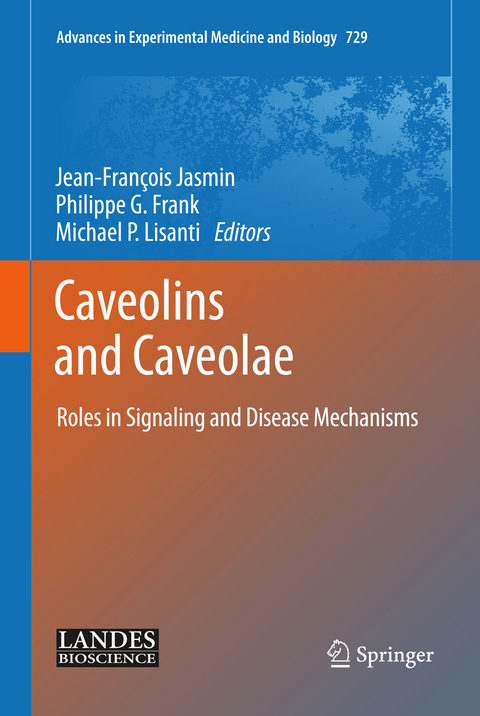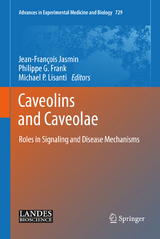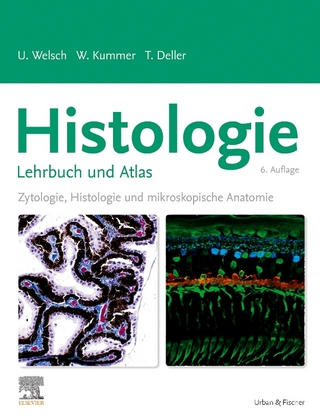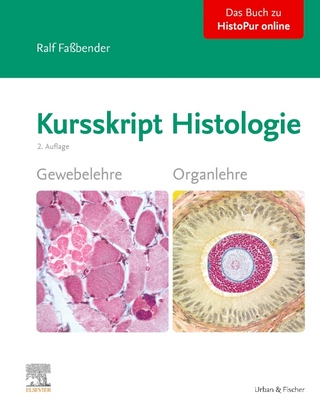Caveolins and Caveolae
Springer-Verlag New York Inc.
978-1-4614-1221-2 (ISBN)
Jean-François Jasmin, PhD, obtained his degree at the University of Montreal (Montreal, Canada) in 2004. From 2004 to 2007, he was a Post-Doctoral Fellow at both the Albert Einstein College of Medicine (Bronx, NY; Department of Molecular Pharmacology) and the Thomas Jefferson University (Philadelphia, PA; Department of Cancer Biology). Currently, he is an Assistant Professor (Tenure-Track) in the Department of Stem Cell Biology and Regenerative Medicine at the Thomas Jefferson University (Philadelphia, PA). The current focus of his laboratory is on the role of caveolin proteins in the development of cardiovascular and pulmonary diseases. Philippe G. Frank, PhD, obtained his degree in 1998 at the University of Ottawa (Ottawa, Canada), under mentor Professor Yves L. Marcel, a pioneer in lipoprotein studies. Dr. Frank’s doctoral dissertation examined the role and function of apolipoprotein A-I in the reverse cholesterol transport pathway. Also in 1998, he continued his career with a post-doctoral fellowship at the Albert Einstein College of Medicine (Bronx, NY). There, his project focused on the role of caveolin proteins in cancer and atherosclerosis, in addition to lipoprotein and cholesterol metabolism. In 2006, he joined the Kimmel Cancer Center as an Assistant Professor at Thomas Jefferson University in Philadelphia, Pennsylvania, where he focuses on the role of lipoproteins in cancer and vascular diseases. Michael P. Lisanti, MD, PhD, obtained his degrees at Cornell University Medical College (New York, NY) in 1992. From 1992-97, he was a Fellow at the Whitehead Institute at MIT (Cambridge, MA), affiliated with Dr. Harvey Lodish’s laboratory. Currently, he is Chairman of the Stem Cell Biology and Regenerative Medicine Department, Leader/ Director of the Program in Molecular Biology and Genetics of Cancer, and Director of the Stem Cell Biology and Regenerative Medicine Center at the Thomas Jefferson University(Philadelphia, PA) as well as Editor-in-Chief of the American Journal of Pathology. The current focus of his laboratory is on the role of caveolin-1 in cancer pathogenesis.
Lipid Rafts, Caveolae and GPI‑Linked Proteins.- Caveolae and the Regulation of Endocytosis.- Caveolin‑1: Role in Cell Signaling.- Regulation of eNOS in Caveolae.- Recent Developments in the Interactions Between Caveolin and Pathogens.- Caveolin‑1 and Breast Cancer: A New Clinical Perspective.- Caveolin‑1 and Prostate Cancer Progression.- Caveolins and Caveolae, Roles in Insulin Signalling and Diabetes.- Atherosclerosis, Caveolae and Caveolin‑1.- Caveolins and Heart Diseases.- Caveolins and Lung Function.
| Reihe/Serie | Advances in Experimental Medicine and Biology ; 729 |
|---|---|
| Zusatzinfo | 1 Illustrations, color; 26 Illustrations, black and white; XX, 184 p. 27 illus., 1 illus. in color. |
| Verlagsort | New York, NY |
| Sprache | englisch |
| Maße | 178 x 254 mm |
| Themenwelt | Studium ► 1. Studienabschnitt (Vorklinik) ► Histologie / Embryologie |
| Schlagworte | Caveolae • Caveolin • Frank • Jasmin • Lisanti • Mechanism • Signaling |
| ISBN-10 | 1-4614-1221-8 / 1461412218 |
| ISBN-13 | 978-1-4614-1221-2 / 9781461412212 |
| Zustand | Neuware |
| Haben Sie eine Frage zum Produkt? |
aus dem Bereich




